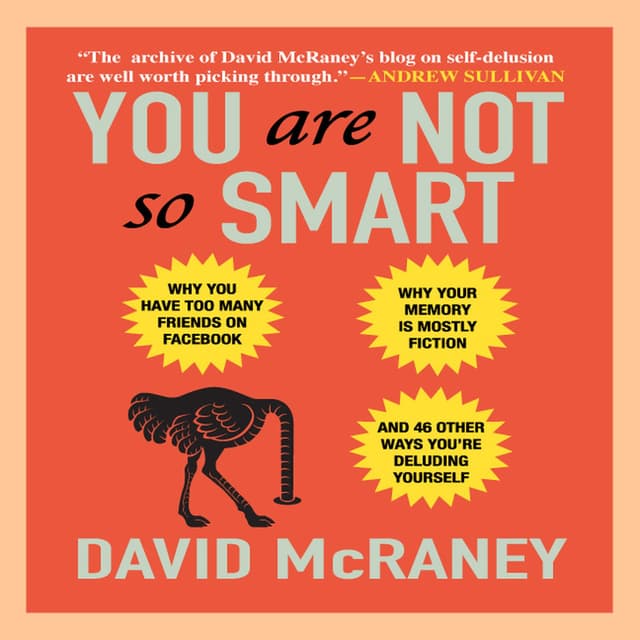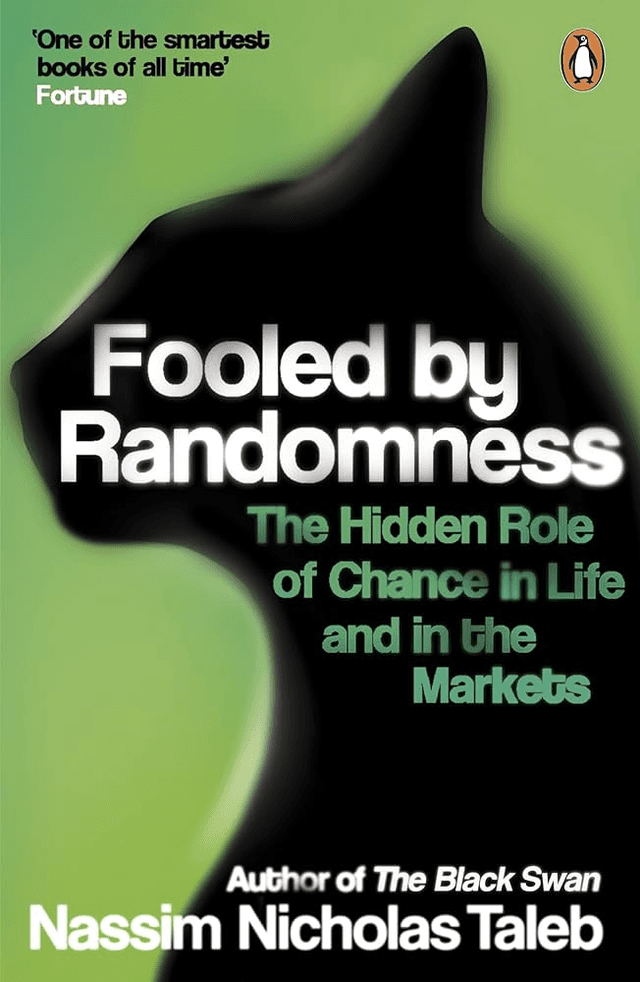YOU are NOT so SMART vs. Fooled by Randomness
YOU are NOT so SMART
Finally realize why I'm such dumb *ss
Fooled by Randomness
"Fooled by Randomness" is a thought-provoking book by Nassim Nicholas Taleb that delves into the role of chance in our lives and how we often mistake random events for meaningful patterns. Through a mix of personal anecdotes, philosophical insights, and statistical analysis, Taleb explores how randomness affects the world of finance, business, and daily life. The book challenges readers to rethink their perceptions of success, failure, and the forces that drive outcomes. This book is ideal for readers interested in finance, probability, and the philosophical implications of randomness.
Reviews
Reviews
| Item | Votes | Upvote |
|---|---|---|
| No pros yet, would you like to add one? | ||
| Item | Votes | Upvote |
|---|---|---|
| No cons yet, would you like to add one? | ||
| Item | Votes | Upvote |
|---|---|---|
| Engaging storytelling | 1 | |
| Thought-provoking concepts | 1 | |
| Insightful analysis on randomness and probability | 1 |
| Item | Votes | Upvote |
|---|---|---|
| Dense statistical discussions | 1 | |
| Can be repetitive | 1 | |
| Requires careful reading to fully grasp concepts | 1 |
Frequently Asked Questions
'YOU are NOT so SMART' focuses on various cognitive biases and how they affect our thinking, making it accessible for readers looking to understand their own thought processes. In contrast, 'Fooled by Randomness' delves deeper into the role of chance and randomness, particularly in finance and decision-making. If your primary interest is cognitive biases, 'YOU are NOT so SMART' may be more suitable, while 'Fooled by Randomness' offers a broader philosophical perspective on randomness.
'Fooled by Randomness' is noted for its engaging storytelling and thought-provoking concepts, making it appealing to readers who enjoy narrative-driven insights. 'YOU are NOT so SMART', while informative, may not have the same level of narrative engagement. Therefore, if storytelling is a priority, 'Fooled by Randomness' is likely the better choice.
'Fooled by Randomness' is considered more challenging due to its dense statistical discussions and the need for careful reading to fully grasp its concepts. In contrast, 'YOU are NOT so SMART' is generally more accessible and straightforward. If you prefer a lighter read, 'YOU are NOT so SMART' may be the better option.
'YOU are NOT so SMART' by David McRaney is a book that delves into the common misconceptions and cognitive biases that affect our everyday thinking. It explores why people often overestimate their intelligence and make irrational decisions.
David McRaney is an American journalist, author, and lecturer known for his work on the subject of cognitive psychology. He is best known for his book 'YOU are NOT so SMART' and its subsequent works, which explore the psychology behind human irrationality.
As of now, there are no user-generated pros and cons for 'YOU are NOT so SMART'. Generally, readers appreciate its insightful and humorous approach to cognitive psychology, while some may find its content repetitious or overly simplified.
'Fooled by Randomness' is a thought-provoking book by Nassim Nicholas Taleb that delves into the role of chance in our lives and how we often mistake random events for meaningful patterns. Through a mix of personal anecdotes, philosophical insights, and statistical analysis, Taleb explores how randomness affects the world of finance, business, and daily life. The book challenges readers to rethink their perceptions of success, failure, and the forces that drive outcomes. This book is ideal for readers interested in finance, probability, and the philosophical implications of randomness.
Nassim Nicholas Taleb is a renowned essayist, scholar, and former trader known for his work on probability, uncertainty, and randomness. He is the author of several influential books, including 'The Black Swan,' 'Antifragile,' and 'Skin in the Game.' Taleb's work often challenges conventional wisdom and explores the impact of rare and unpredictable events on financial markets and human behavior.
Pros of 'Fooled by Randomness' include engaging storytelling, thought-provoking concepts, and insightful analysis on randomness and probability. However, some readers may find the book's dense statistical discussions challenging, and it can be repetitive at times. Additionally, it requires careful reading to fully grasp the complex concepts presented.





















